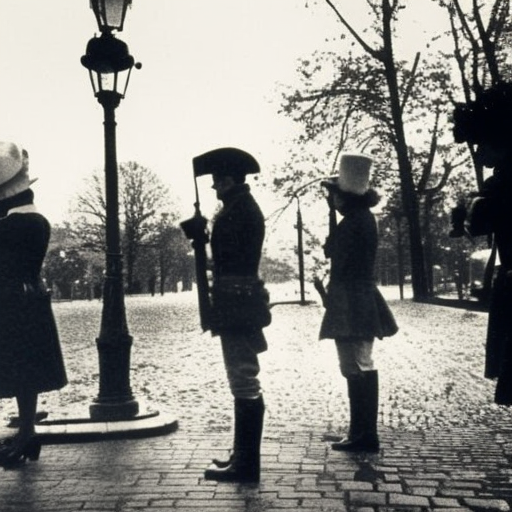The French Revolution: A Turning Point in European History
The French Revolution was a pivotal event that took place between 1789 and 1799 in France. It marked a significant shift in political, social, and economic structures, ultimately leading to the end of the monarchy and the rise of a new republic. The revolution had far-reaching consequences, not only for France but also for the rest of Europe.
Causes of the French Revolution
The French Revolution was fueled by a combination of political, social, and economic factors. The absolute monarchy, which had ruled France for centuries, was increasingly seen as oppressive and out of touch with the needs of the people. The influence of Enlightenment ideas, such as the belief in individual rights and the power of reason, also played a significant role in inspiring the revolutionaries.
The Estates-General and the Storming of the Bastille
In 1789, King Louis XVI called for a meeting of the Estates-General, an assembly representing the three estates of French society: the clergy, the nobility, and the commoners. However, the Third Estate, representing the commoners, felt marginalized and demanded greater representation. Frustration and anger among the commoners led to the storming of the Bastille, a symbol of royal authority, on July 14, 1789. This event marked the beginning of the revolution.
The Reign of Terror and the Rise of Napoleon
The revolution quickly spiraled into a period of violence and instability known as the Reign of Terror. The Committee of Public Safety, led by Maximilien Robespierre, implemented radical measures to suppress counter-revolutionary activities. Thousands of people were executed, including King Louis XVI and Queen Marie Antoinette. However, the Reign of Terror eventually lost popular support, and Robespierre himself was executed in 1794.
Amid the chaos, a young military general named Napoleon Bonaparte emerged as a powerful figure. In 1799, he staged a coup d’état and established himself as the First Consul of France. This marked the end of the revolution and the beginning of a new era of authoritarian rule.
Impact of the French Revolution
The French Revolution had a profound impact on France and the rest of Europe. It abolished the monarchy and established a republic, marking a significant shift in political power. The revolution also brought about important social changes, such as the abolition of feudalism and the introduction of more egalitarian principles.
Furthermore, the revolution inspired other movements for change across Europe. The ideals of liberty, equality, and fraternity spread throughout the continent, leading to a wave of revolutions and uprisings in the early 19th century. These events, collectively known as the “Age of Revolutions,” challenged the existing political order and paved the way for the rise of modern nation-states.
In conclusion, the French Revolution was a transformative event that reshaped the political, social, and economic landscape of France and Europe. It was driven by a combination of factors, including political discontent, social inequality, and the influence of Enlightenment ideas. The revolution resulted in the overthrow of the monarchy, the establishment of a republic, and the rise of Napoleon Bonaparte. Its impact extended far beyond France, inspiring other revolutionary movements and setting the stage for the modern era.












